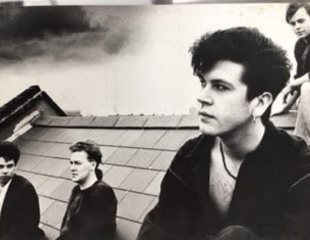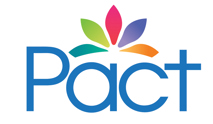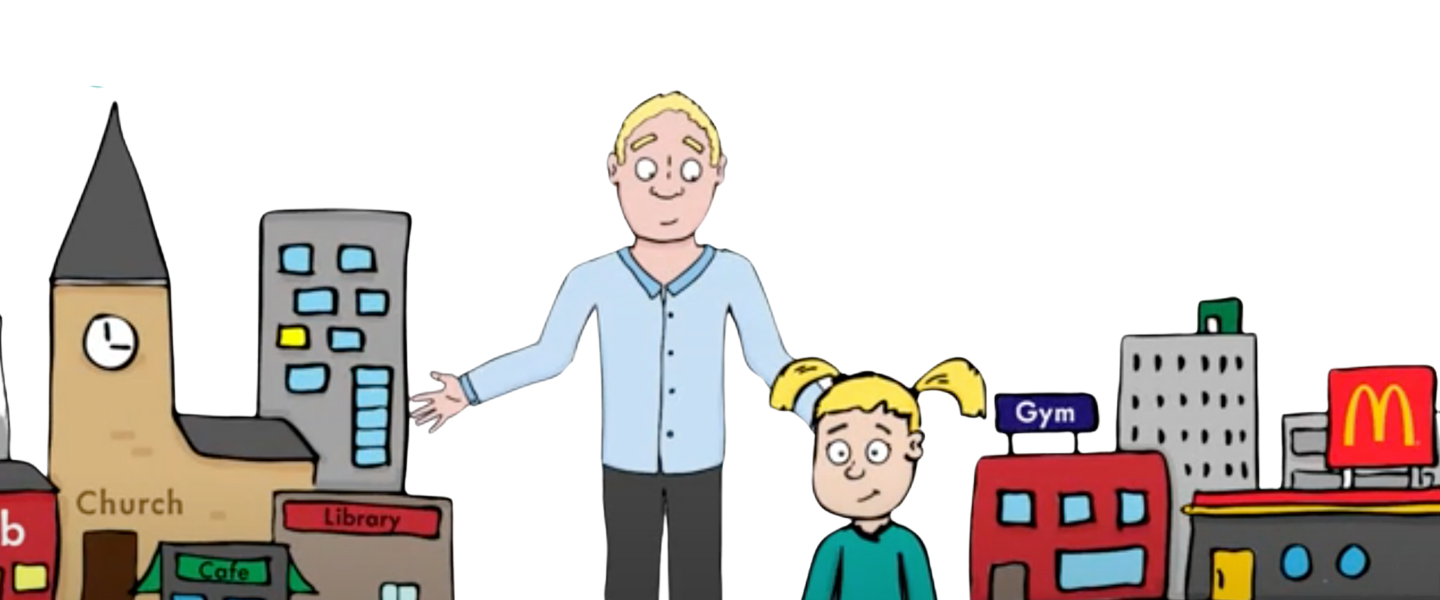30/07/2019
CEO blog
Why do we educate people in prison?
Many years ago, I trained to be a secondary school English teacher. I have always been passionate about the joys and benefits of reading. Usually, when the Government talks about reading, the focus is on literacy. And of course, literacy is key to almost all learning and participation. But books are about so much more.
As a child, growing up in what would by any measure be described as challenging circumstances, books opened up for me a universe of imagination and possibility. And when I found things tough at home, or at school, or in the police station (where I spent more time than is ideal for a young child), it was my English teachers to whom I turned. They seemed to me to be the adults who had the most empathy and understanding for what I was going through, and the best solutions. And sometimes, their solution was to recommend a book that would change my life.
So the idea of being an English teacher, and sharing that with kids was exciting.
But here is my confession (you can tell I’m a Catholic, can’t you). At the time I was at University doing my teacher training, my ambition was actually to make it in the music industry.

Yes, dear readers, I had dreams of being a rock & roll star. But even I knew in my most self-deluding moments that the odds of landing a record contract were thin. So I thought I’d train to do something that could give me a rewarding career as a back-up plan. That’s why I enrolled to do a Post Graduate Certificate in Education, whilst playing pub gigs to one man and his dog around London.
But by the time I had qualified, it dawned on me that actually, to be a good teacher – to be the kind of teacher that inspired me – would take more than a certificate. I realised that before going back to school, I wanted some more experience of life. A very experienced teacher kindly and patiently explained to me that all I needed to do was to be one chapter ahead of the students in the course books, and I knew that most teachers start like this. We all have to start somewhere, right? But maybe I just wasn’t brave or mature enough. In any case, the idea of going back into a classroom of 17 year olds at the age of 23, having never been anything other than a student, seemed a bit bizarre. So I decided that if I wasn’t going to be the next big thing in Indie Rock, (which needless to say I wasn’t), I would get some life under my belt before going back to school. So I went and did some other things instead.
A few years later, having worked in the City and discovered just how ill-suited I was to corporate capitalism, I took a leap of faith and moved into the voluntary sector. My first charity job was for Gatehouse, a tiny adult literacy charity working in a particularly tough neighbourhood of Manchester. I trained to be a literacy tutor. I loved every minute of it. We published books by adults who were attending literacy classes who also attended our creative writing groups, and we part-funded ourselves by selling these books as learning resources. Our biggest customer was HM Prisons.
I mention this because I am passionate about books, and literacy, and the transformative power of education - for everyone, including of course, people in prison. Without some of the relationships I had as a child, and without books, I expect I would have spent many years in prison myself. I came too close for comfort on several occasions.
I imagine most people reading this will share my belief that prisons should be places for rehabilitation. Places of ‘redemption’ even. We deprive people of their liberty as society’s punishment for transgression against our laws. That’s the punishment that prisons dole out. They serve the courts. The question we then have to ask ourselves is how do we want those people to spend their time whilst they are inside?
So, most decent or rational human beings take the view that the time should be spent on activities which reduce the probability that the prisoner will offend again on release. Stands to reason, surely? And as a prisoner said to me recently, ‘if they treat us like animals, we will come out like animals, if they treat us like human beings, we will come out like human beings.’ So first and foremost, we need to keep prisoners safe, and we need to ensure prisons are decent places in which to live. We need to be ‘human’. That means prisoners need to be active.
And most sensible people will say, quite rightly, that we need to ensure that when people leave prison, they can earn a legal income, and have the dignity that comes with work. So, one purpose of prison education has to be about preparing people for the world of work. That means people need functional skills. Maybe they also need vocational skills, to help them jump straight into the kinds of industries that will recruit people with records. They need a CV, and they need to know how to write an application and succeed in a job interview.
So, all of that is great. But is that enough? Is that what prison education is for?
Well, here’s the point of why I am writing this piece. Education for employability is clearly very important. But it quite obviously isn’t enough. If it were, we might expect to see lower re-offending rates than we are getting.
So my argument is that we need to think again about why we educate people in prison.
Because let’s face it, people in prison have already been through the education system. They have had years and years of sitting in classrooms. And they have still ended up in prison. And re-offending is still very high. So why do we think that more of the same is going to do the trick?
If prisons are about rehabilitation, or – if I may use the rather loaded term - ‘redemption’ - then perhaps we want to look at the evidence about what actually works?
In 2017, Lord Michael Farmer published what the Ministry of Justice hailed as his ‘ground-breaking report’ into what works for men in prison. A few months ago, he followed this up with his new report on women in prison.
These reports are a result of a huge review, which MoJ, HMPPS, Pact, Clinks, PoPs, and other charities supported. Hundreds of prisoners, family members, prison staff and voluntary sector workers were consulted. The Farmer Reports added to an already substantial and growing international evidence base on the significance of healthy stable relationships and desistance from offending. The Ministry of Justice already knew from its own research that for a prisoner who receives visits from a family member the odds of re-offending are 39% lower than for those who do not. We also knew that when the MoJ, and HM Inspectorates of Prisons, Probation and Ofsted studied what worked for prisoners on release in terms of accommodation and employment outcomes, the single most important factor was the involvement of prisoners’ own family members. And more recently, Cambridge University’s ‘FAIR’ study shows a strong correlations between those ex-prisoners who get clean and stay clean, and family relationships.
The phrase that is now used by Michael Farmer to sum up his findings is ‘the golden thread’. As he puts it, ‘strong, stable families and healthy relationships must be the golden thread of prison reform’.
So, where the ‘golden thread’ in prison education?
When I was a young literacy worker in Manchester, I was struck by how many adults with poor literacy keep it a secret. The sense of shame is acute. I was also fascinated by what drove people to disclose the issue and to seek help. You would think perhaps that it would be the desire to get a better job? Actually, no. The single biggest motivation to change was children. What drove people to our classes at Gatehouse were kids saying ‘Daddy, can you read me a story?’ ‘Mum, can you help me with my homework?’
And that’s before I even mention how we begin to tackle the inter-generational cycle of offending and the vital importance of positive parenting…
But let’s face it. Being a parent is hard…for anyone. Holding a long term relationship together is hard…for anyone. If you have had a chaotic, offending lifestyle, and been in prison, how much harder is it, to keep a family together? To be a good father or mother, and a supportive partner?
So, what should prison education be for? Yes, of course, it should be to support people into employment. Yes of course, it should be about decency, and being active. And it should be about widening horizons and stimulating a healthy imagination. But if I were to be asked to prioritise why we should educate prisoners, it would be to live in healthy, stable relationships. Because healthy, stable relationships, and the realistic hope of having a happy family life, have been shown to have a greater impact on motivation to learn, motivate to change, on stable accommodation and on employment after prison, than any single other factor. And so my argument is that if we are not basing our prison education offer on what works to reduce re-offending, then we are missing the greatest opportunity of all. The golden thread needs to be woven into the fabric of prison education policy and commissioning.
If you have not seen family learning, parenting, or relationship education being delivered in a prison, you may wonder what it looks like. Here’s a short animation we have produced with our good friend, Professor Cathy Nutbrown, from the University of Sheffield. You’ll hear what prisoners and family members say about the ‘FLiP’ (Family Literacy in Prisons) programme, one of the many relationship and parenting education and family learning programmes we have developed, which are available to Prison Governors. Some of the other courses we provide can be found on the same web page, or we can send you an information pack.
Prison education is a golden thread opportunity. Let’s get it right…

